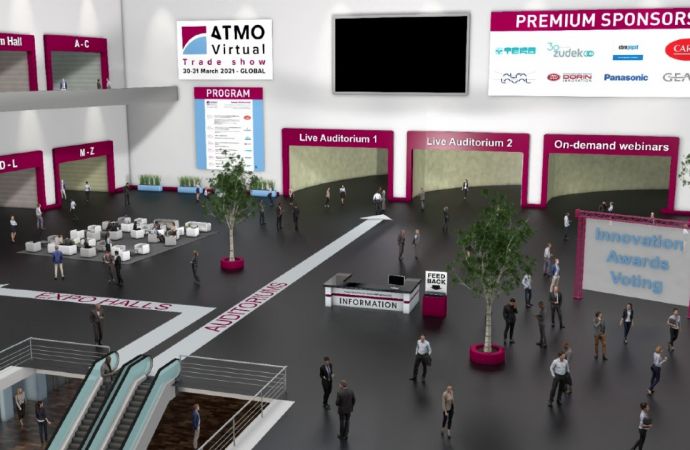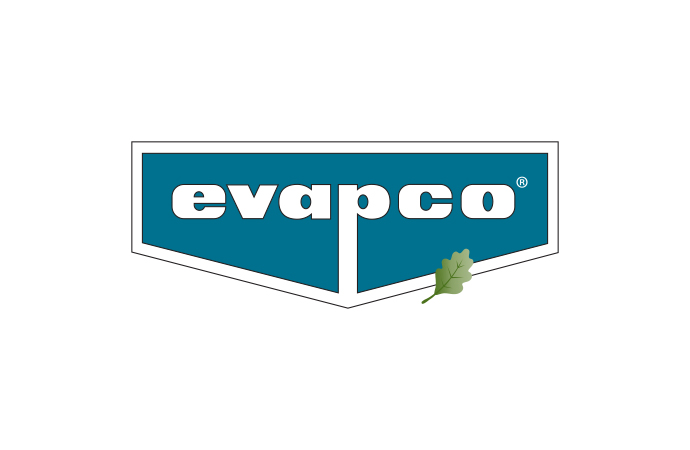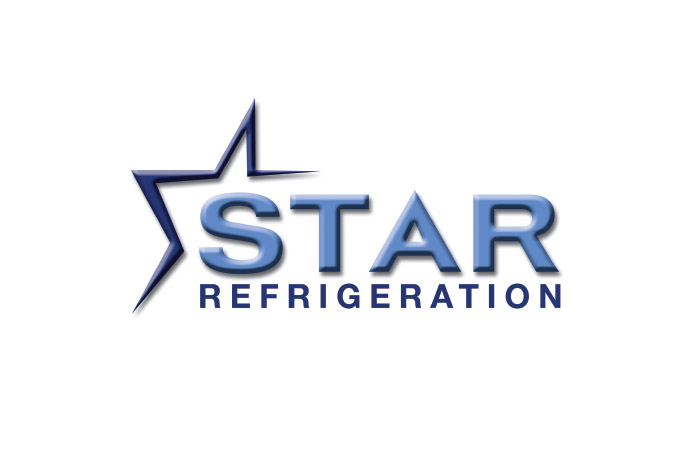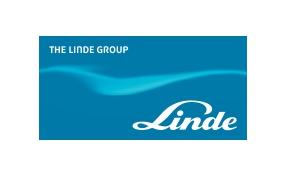ammonia21.com provides an overview of two papers presented at the 23rd IIR International Congress of Refrigeration (ICR) covering: a high efficiency low charge ammonia solution for low temperature applications and a literature review of flow boiling heat transfer of ammonia in horizontal and vertical tubes.

Last week, the 23rd International Institute of Refrigeration (IIR) International Congress of Refrigeration (ICR) showcased the latest developments and progress in refrigeration equipment, including ammonia applications. One of the sessions focused on the “characteristics of ammonia-water systems”.
High Efficiency, Low Charge Ammonia Solution for Low Temperature Food Processing and Cold Storage Applications, Dr D.J. Cotter, Star Technical Solutions
At a 5 minute poster presentation during the “characteristics of ammonia-water systems” session, Dr D.J. Cotter of Star Technical Solutions presented research work on low pressure receiver air coolers that can be combined with a low charge, low pressure receiver (LPR) system, the latter allowing to keep the ammonia refrigerant charge at a minimum. For example, Star Refrigeration has developed and patented the low pressure receiver system, which allows the refrigerant charge to be kept as low as 1.5kg of refrigerant per kW of cooling capacity.
Focusing on the low pressure receiver air cooler, Dr Cotter has carried out research on ammonia flow visualisation and site tests and found that by changing the tube material from stainless steel to aluminium the low pressure receiver cooler heat transfer coefficient increases by 100%. This brings the performance of the low pressure receiver cooler on par with that of standard pump circulated air coolers.
The author concludes that because the low pressure receiver system does not have an ammonia pump running all the time, such a system has a higher coefficient of system performance (COSP) than a pumped recirculation system. Moreover, the low pressure receiver ammonia system has the additional advantage of lending itself to a very efficient reverse cycle defrosting system, making this system an ideal solution for use in spiral freezers and cold storage applications.
Overall, Dr Cotter identifies the following advantages of a low pressure receiver system with air coolers over the pumped recirculation system:
A Literature Overview on Flow Boiling Heat Transfer of Ammonia In Horizontal and Vertical Tubes, Klaus Spindler, Institute of Thermodynamics and Thermal Engineering, University of Stuttgart
In a keynote presentation during the same session, Spindler presented a literature review of experimental studies on flow boiling of ammonia in horizontal plain tubes, horizontal microfin tubes, as well as in vertical annulus and vertical tubes. He also presented a summary of experimental studies on the influence of oil on flow boiling of ammonia in horizontal tubes.
Splinder concludes that the correlations by Shah (1975) and Liu & Winterton (1991) are applicable for plain tubes and that the correlation by Chamra & Mago (2007) yields good results for microfin tubes. However, he recommends that new flow pattern maps for microfin tubes be developed, and assesses that the influence of oil on the flow boiling heat transfer of ammonia is not fully understood.
High Efficiency, Low Charge Ammonia Solution for Low Temperature Food Processing and Cold Storage Applications, Dr D.J. Cotter, Star Technical Solutions
At a 5 minute poster presentation during the “characteristics of ammonia-water systems” session, Dr D.J. Cotter of Star Technical Solutions presented research work on low pressure receiver air coolers that can be combined with a low charge, low pressure receiver (LPR) system, the latter allowing to keep the ammonia refrigerant charge at a minimum. For example, Star Refrigeration has developed and patented the low pressure receiver system, which allows the refrigerant charge to be kept as low as 1.5kg of refrigerant per kW of cooling capacity.
Focusing on the low pressure receiver air cooler, Dr Cotter has carried out research on ammonia flow visualisation and site tests and found that by changing the tube material from stainless steel to aluminium the low pressure receiver cooler heat transfer coefficient increases by 100%. This brings the performance of the low pressure receiver cooler on par with that of standard pump circulated air coolers.
The author concludes that because the low pressure receiver system does not have an ammonia pump running all the time, such a system has a higher coefficient of system performance (COSP) than a pumped recirculation system. Moreover, the low pressure receiver ammonia system has the additional advantage of lending itself to a very efficient reverse cycle defrosting system, making this system an ideal solution for use in spiral freezers and cold storage applications.
Overall, Dr Cotter identifies the following advantages of a low pressure receiver system with air coolers over the pumped recirculation system:
- It can defrost effectively with only one cooler.
- Its reverse cycle defrost system allows for shorter defrosts and is 50% more efficient.
- The footprint of the system is smaller and can easily be placed in a housing.
- There is little site work as an assembled package can be sent to site with only site connection to
- condenser and evaporator required.
- There is no requirement for ammonia valves in the production or store areas.
- The system has a built in automatic oil recovery system.
- The system’s overall efficiency is higher than pumped systems as there is no running liquid pump.
A Literature Overview on Flow Boiling Heat Transfer of Ammonia In Horizontal and Vertical Tubes, Klaus Spindler, Institute of Thermodynamics and Thermal Engineering, University of Stuttgart
In a keynote presentation during the same session, Spindler presented a literature review of experimental studies on flow boiling of ammonia in horizontal plain tubes, horizontal microfin tubes, as well as in vertical annulus and vertical tubes. He also presented a summary of experimental studies on the influence of oil on flow boiling of ammonia in horizontal tubes.
Splinder concludes that the correlations by Shah (1975) and Liu & Winterton (1991) are applicable for plain tubes and that the correlation by Chamra & Mago (2007) yields good results for microfin tubes. However, he recommends that new flow pattern maps for microfin tubes be developed, and assesses that the influence of oil on the flow boiling heat transfer of ammonia is not fully understood.
MORE INFORMATION
Related stories














